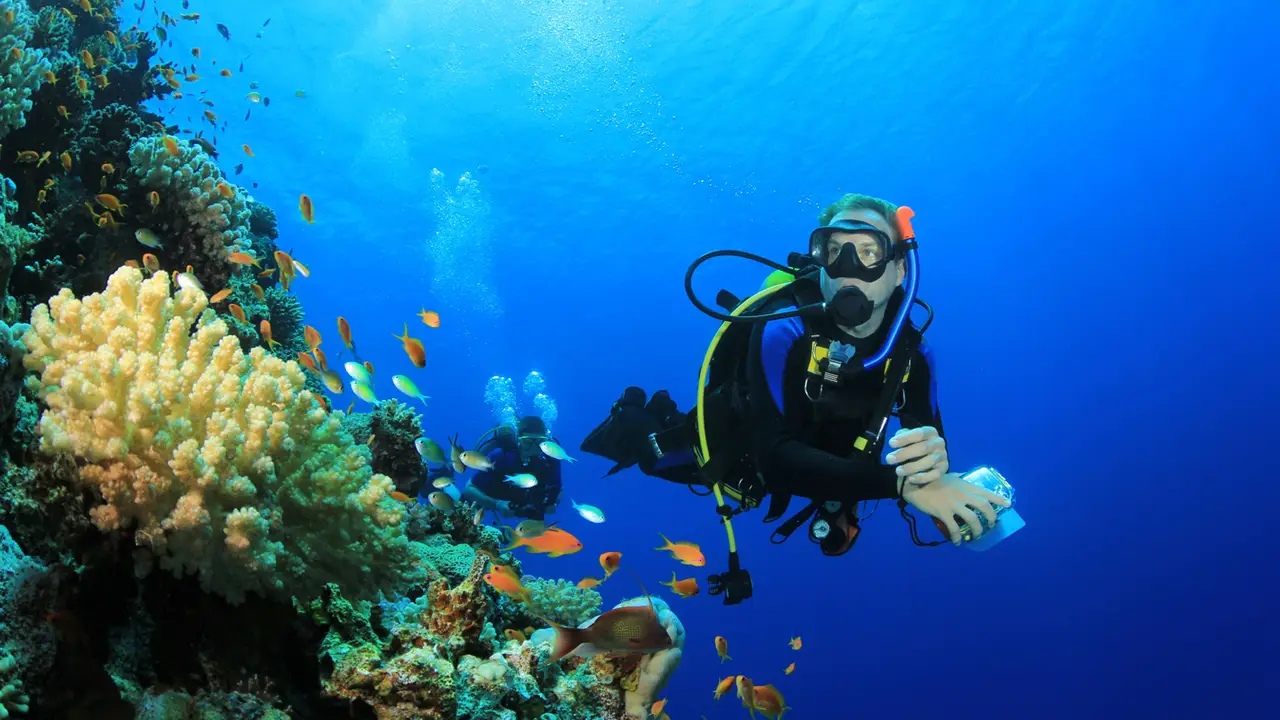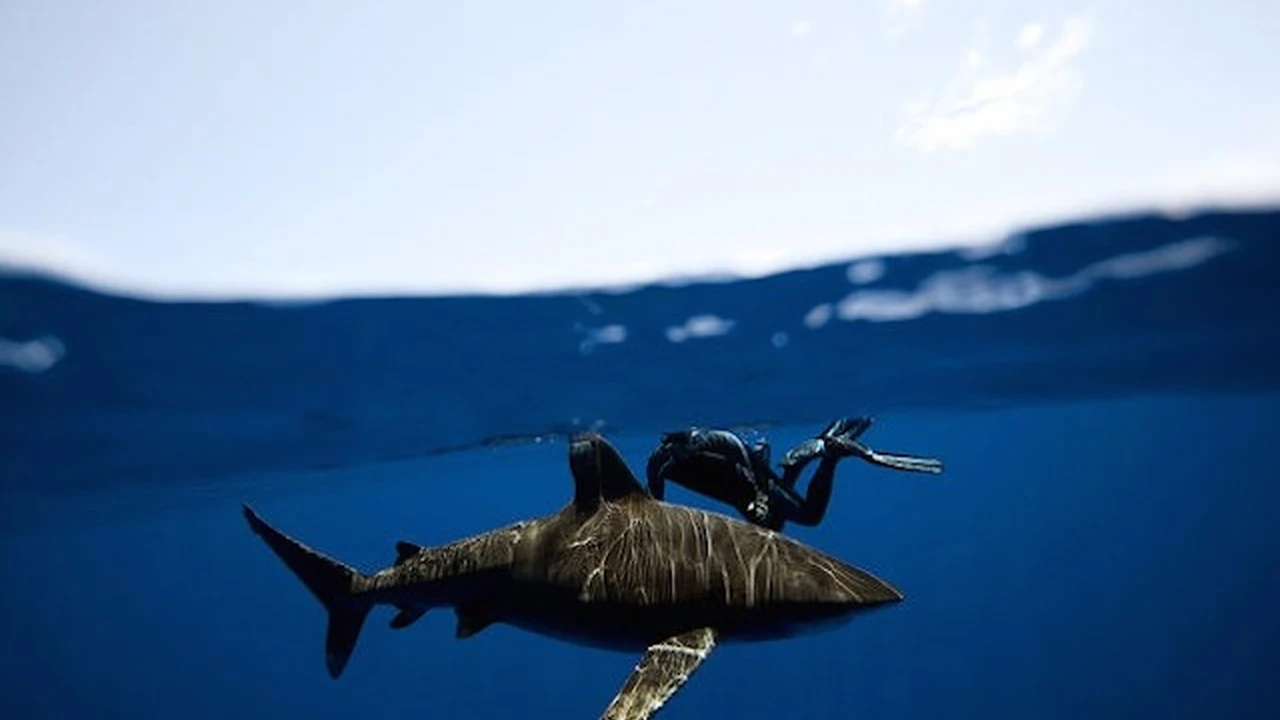Best Scuba Diving Blogs and Online Communities
Discover top blogs and online forums for connecting with other divers and staying informed.

Best Scuba Diving Blogs and Online Communities
Hey there, fellow dive enthusiasts! Ever feel like you're missing out on the latest dive spots, gear reviews, or just want to chat with someone who gets your obsession with the underwater world? You're in luck! The internet is brimming with incredible scuba diving blogs and vibrant online communities where you can connect, learn, and share your passion. Whether you're a seasoned pro or just got your Open Water certification, these platforms are goldmines of information and camaraderie. Let's dive in and explore some of the best places to hang out online.
Why Engage with Scuba Diving Blogs and Forums?
Before we list out the top spots, let's quickly chat about why engaging with these online resources is super beneficial. First off, knowledge is power, right? Blogs often feature in-depth articles on dive safety, marine life identification, travel guides, and gear comparisons. Forums, on the other hand, are fantastic for asking specific questions, getting real-time advice, and sharing your own experiences. It's like having a global dive buddy network at your fingertips. Plus, staying informed about conservation efforts and new technologies keeps you a responsible and up-to-date diver.
Top Scuba Diving Blogs for In-Depth Information and Inspiration
When it comes to getting your fix of well-researched articles, stunning photography, and inspiring dive stories, these blogs are a must-read. They often feature contributions from experienced divers, marine biologists, and travel writers.
Dive Magazine Online: Your Go-To for Global Dive News and Features
Dive Magazine isn't just a print publication; their online presence is fantastic. They cover everything from breaking dive news and conservation efforts to destination guides and gear reviews. Their articles are always well-written and informative, making it a great resource for staying current with the wider dive world. You'll find features on new discoveries, interviews with prominent figures in the dive community, and stunning photo essays that will make you want to book your next trip immediately.
Scuba Diving Magazine: Comprehensive Guides and Gear Reviews
Similar to Dive Magazine, Scuba Diving Magazine's website is a powerhouse of information. They excel at providing comprehensive guides for various dive skills, detailed gear reviews, and travel itineraries. If you're looking to buy a new piece of equipment, their 'Editor's Picks' and comparison articles are incredibly helpful. They also have a strong focus on dive safety and training, which is always a plus.
The Scuba News: Daily Updates and Industry Insights
For those who like to stay on top of daily happenings in the dive industry, The Scuba News is your spot. They publish frequent updates on conservation news, new product releases, dive events, and even job postings in the dive sector. It's a great way to get quick bites of information and keep your finger on the pulse of the diving world.
Deeper Blue: Technical Diving and Marine Conservation Focus
Deeper Blue is a fantastic resource, especially if you're into technical diving, freediving, or have a keen interest in marine conservation. They offer a wealth of articles on advanced diving techniques, marine biology, and environmental issues affecting our oceans. Their content is often more in-depth and caters to divers looking for a deeper understanding of the underwater realm.
Girls That Scuba: Empowering Female Divers and Travel Tips
This blog and community is specifically for female divers, offering a supportive space to share experiences, ask questions, and find dive buddies. They feature inspiring stories from women divers around the world, provide practical travel tips, and review gear specifically designed for women. It's a wonderful platform for empowerment and connection within the female dive community.
Vibrant Online Communities and Forums for Interaction and Support
While blogs are great for consuming content, forums and social media groups are where the real interaction happens. These are the places to ask questions, share your latest dive photos, and even find dive buddies for your next adventure.
ScubaBoard: The Granddaddy of Dive Forums
ScubaBoard is arguably the largest and most active online scuba diving forum. You'll find discussions on virtually every topic imaginable, from gear recommendations and dive travel to marine life identification and technical diving. The community is vast and generally very helpful, though like any large forum, you might encounter a few strong opinions. It's an excellent place to get diverse perspectives and tap into a huge pool of collective knowledge. They have dedicated sections for different regions, gear types, and even specific dive agencies, making it easy to find relevant discussions.
Reddit r/scuba: A Modern Take on Dive Discussions
If you're already a Reddit user, the r/scuba subreddit is a fantastic community. It's a bit more casual than ScubaBoard but still offers a ton of valuable information and lively discussions. You'll find people sharing dive photos, asking for advice on certifications, discussing dive trip experiences, and debating the merits of different gear. It's a great place for quick questions and getting a feel for current trends and opinions within the dive community.
Facebook Groups: Niche Communities and Local Connections
Facebook groups are incredibly popular for niche interests, and scuba diving is no exception. You can find groups dedicated to specific dive locations (e.g., 'Scuba Diving in Florida Keys'), types of diving (e.g., 'Underwater Photography Enthusiasts'), or even specific gear brands. These groups are excellent for connecting with local divers, finding dive buddies, and getting recommendations for local dive shops or charters. Just search for 'scuba diving' plus your interest, and you'll likely find a thriving community.
DiveBuddy.com: Connecting Divers and Planning Trips
DiveBuddy.com is a social networking site specifically for divers. It allows you to create a profile, log your dives, connect with other divers, and even plan trips together. It's a great tool for finding dive buddies in your area or for your next travel destination. You can also read reviews of dive sites and operators, which is super helpful when planning an adventure.
Recommended Products for Enhancing Your Online Dive Experience
While these aren't 'dive gear' in the traditional sense, these products can significantly enhance your ability to engage with online communities and make the most of your digital dive life.
1. High-Quality Webcam and Microphone for Online Meetups
Many online communities, especially during the pandemic, have started hosting virtual meetups, webinars, and even online dive courses. Having a good quality webcam and microphone ensures you can participate clearly and effectively. This is especially useful if you're joining a live Q&A with a marine biologist or a virtual dive club meeting.
- Product Recommendation: Logitech C920s Pro HD Webcam
- Use Case: Perfect for clear video calls, online webinars, and virtual dive presentations.
- Comparison: While there are cheaper webcams, the C920s offers excellent 1080p video quality and reliable autofocus, making your online presence professional. More expensive options like the Logitech Brio offer 4K, but for most online interactions, the C920s is more than sufficient.
- Price: Around $60-$80 USD.
2. Reliable Tablet or Laptop for On-the-Go Research and Forum Browsing
Whether you're waiting for your next dive boat or relaxing after a day in the water, a portable device makes it easy to catch up on blog posts, browse forums, and upload your dive logs. A good screen and decent battery life are key.
- Product Recommendation: Apple iPad Air (latest generation)
- Use Case: Ideal for reading articles, watching dive documentaries, browsing forums, and light photo editing on the go.
- Comparison: iPads are known for their intuitive interface, excellent display, and long battery life. Android tablets like the Samsung Galaxy Tab S series offer similar functionality, often at a slightly lower price point, but the iPad's app ecosystem for productivity and media consumption is generally superior. Laptops offer more power but are less portable for casual browsing.
- Price: Around $599-$749 USD, depending on storage.
3. External Hard Drive for Storing Dive Photos and Videos
If you're actively participating in online communities, chances are you'll be sharing your amazing underwater photos and videos. A reliable external hard drive is crucial for backing up your precious memories and keeping your computer's storage free.
- Product Recommendation: SanDisk Extreme Portable SSD
- Use Case: Fast and durable storage for backing up high-resolution dive photos and 4K video footage. Its rugged design is a bonus for travel.
- Comparison: Traditional HDDs (Hard Disk Drives) are cheaper per gigabyte but much slower and more fragile. SSDs (Solid State Drives) like the SanDisk Extreme are significantly faster and more resistant to drops, making them ideal for travelers. Other brands like Samsung T7 also offer excellent portable SSDs.
- Price: Varies by capacity, e.g., 1TB for around $100-$130 USD.
4. VPN Service for Secure Browsing, Especially When Traveling
When you're connecting to public Wi-Fi networks at dive resorts or airports to access your favorite blogs and forums, a VPN (Virtual Private Network) is essential for protecting your data and privacy. It encrypts your internet connection, making it much harder for snoopers to access your information.
- Product Recommendation: ExpressVPN or NordVPN
- Use Case: Securing your internet connection when using public Wi-Fi, accessing geo-restricted content (like some dive documentaries), and maintaining privacy while browsing.
- Comparison: Both ExpressVPN and NordVPN are top-tier services known for their strong encryption, vast server networks, and user-friendly interfaces. ExpressVPN is often praised for its speed, while NordVPN offers a slightly lower price point for multi-year plans. Free VPNs are generally not recommended due to potential data logging and slower speeds.
- Price: Typically $6-$13 USD per month, with discounts for longer subscriptions.
5. Photo and Video Editing Software (Subscription or One-Time Purchase)
To truly engage with online communities, especially those focused on underwater photography, you'll want to share your best work. Good editing software can transform a decent shot into a stunning masterpiece.
- Product Recommendation: Adobe Creative Cloud Photography Plan (Lightroom + Photoshop)
- Use Case: Professional-grade editing for both photos (Lightroom for organization and basic edits, Photoshop for advanced retouching) and basic video editing.
- Comparison: This subscription offers the industry standard tools. Alternatives include Affinity Photo (one-time purchase, powerful but steeper learning curve), GIMP (free, open-source, but less intuitive), and various mobile editing apps (convenient but less powerful). For video, DaVinci Resolve (free version available) is a powerful alternative to Adobe Premiere Pro.
- Price: Around $9.99 USD per month for the Photography Plan.
Making the Most of Your Online Dive Connections
So, you've found your favorite blogs and joined a few forums. Now what? Here are some tips to get the most out of these online spaces:
Be Respectful and Constructive in Discussions
Online communities thrive on respectful interaction. When participating in forums, always be polite, even if you disagree with someone. Offer constructive criticism rather than just negativity. Remember, everyone is there because they share a love for diving.
Share Your Experiences and Knowledge
Don't be a lurker! Your experiences, no matter how new you are to diving, can be valuable to others. Share your dive stories, ask questions, and if you have expertise in a particular area, offer advice. The more you contribute, the richer the community becomes.
Verify Information, Especially for Safety-Critical Topics
While online communities are great for advice, always remember that not everyone is a certified expert. For safety-critical information (like dive planning, medical advice, or complex gear issues), always cross-reference information with official sources, your dive instructor, or a qualified professional. Forums are for discussion, not definitive medical or safety guidance.
Connect with Local Divers and Plan Meetups
Many online communities have sections for local meetups or finding dive buddies. Don't be shy! Connecting with divers in your area can lead to fantastic local dive trips and new friendships. Always exercise caution and meet in public places for the first time, just like with any online connection.
Stay Updated with Newsletters and Social Media Feeds
Most blogs and forums offer newsletters or have active social media presences. Subscribe to newsletters and follow their social media accounts to ensure you don't miss out on new articles, discussions, or special events. This is a great way to keep a steady stream of dive-related content flowing into your daily life.
Engaging with scuba diving blogs and online communities is a fantastic way to deepen your passion for the underwater world, stay informed, and connect with like-minded individuals. So go ahead, explore these digital oceans, and happy diving!
:max_bytes(150000):strip_icc()/277019-baked-pork-chops-with-cream-of-mushroom-soup-DDMFS-beauty-4x3-BG-7505-5762b731cf30447d9cbbbbbf387beafa.jpg)





